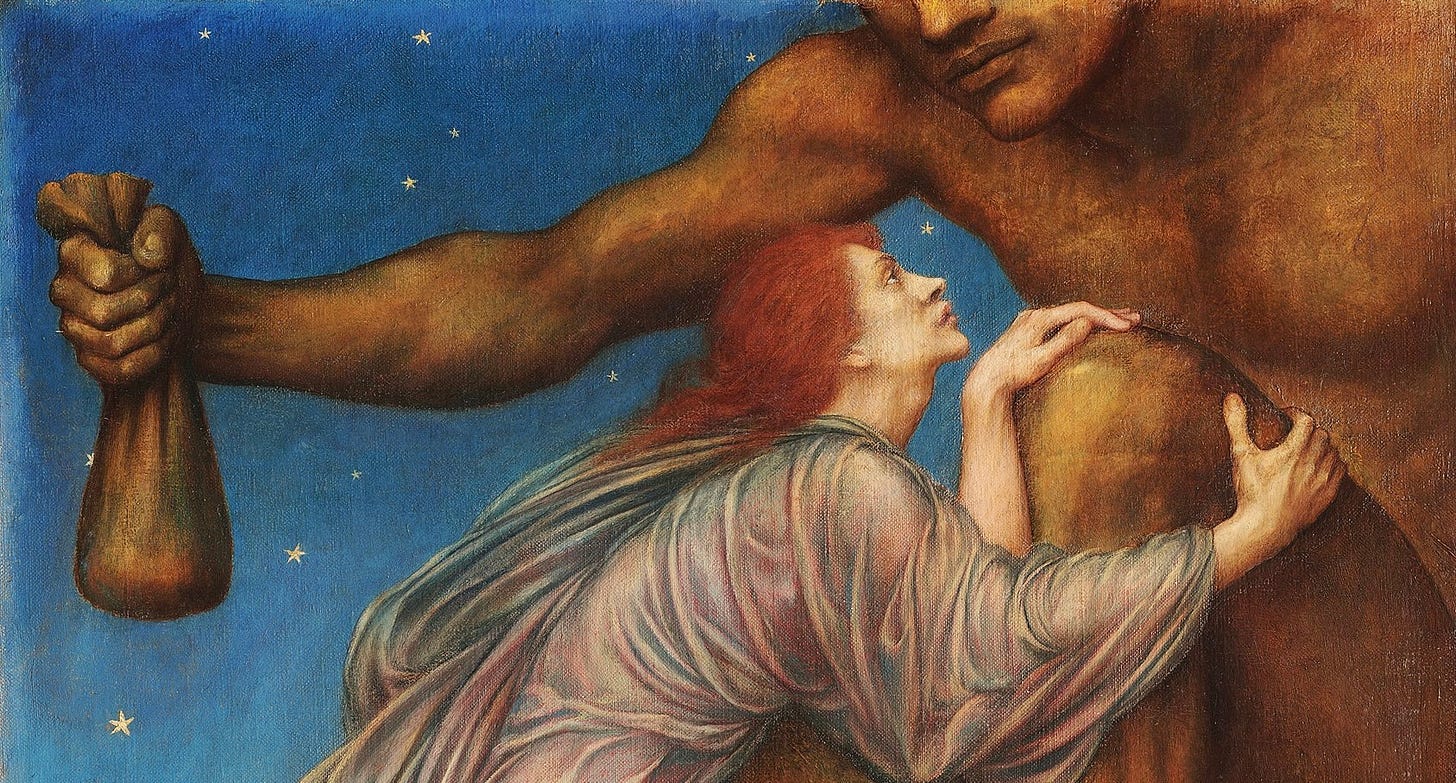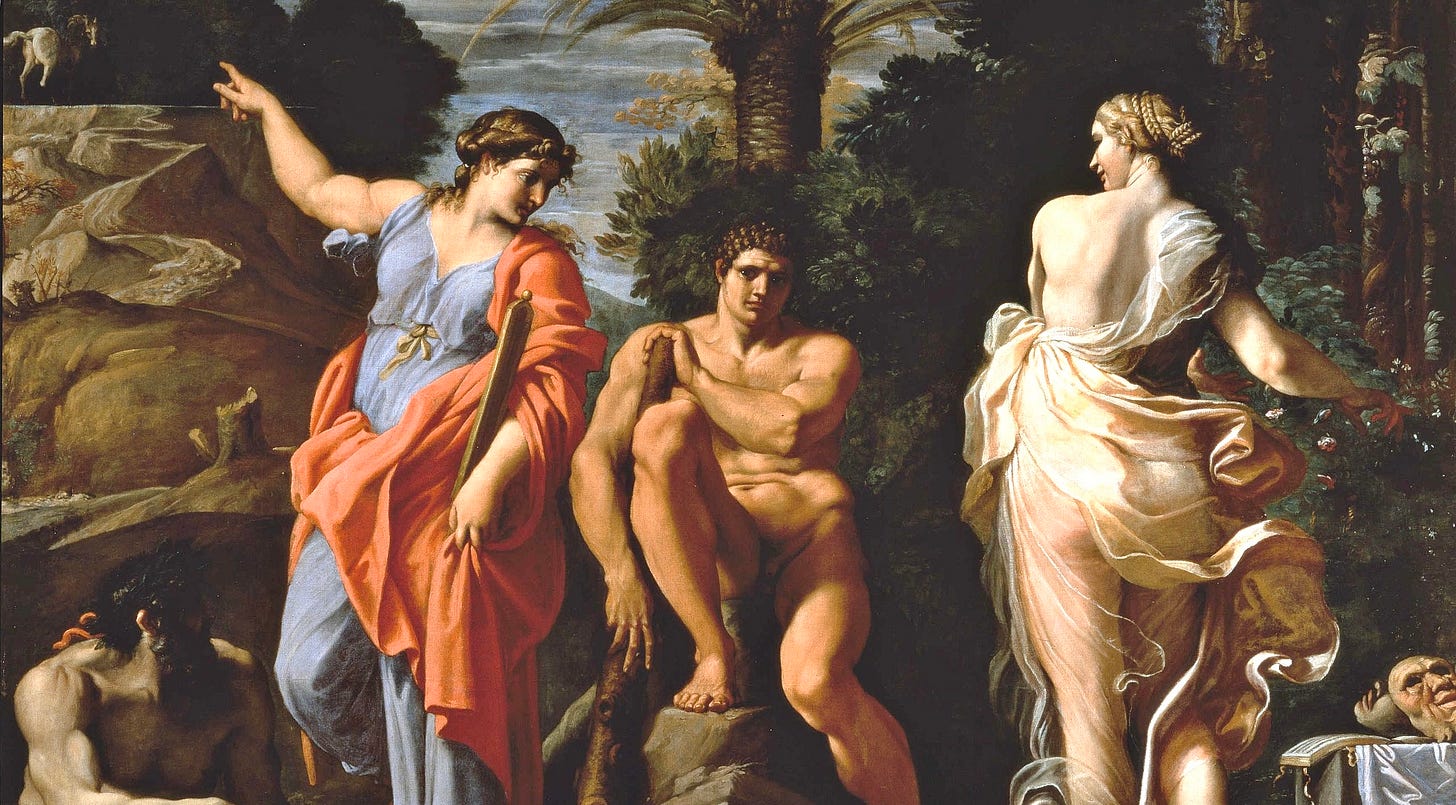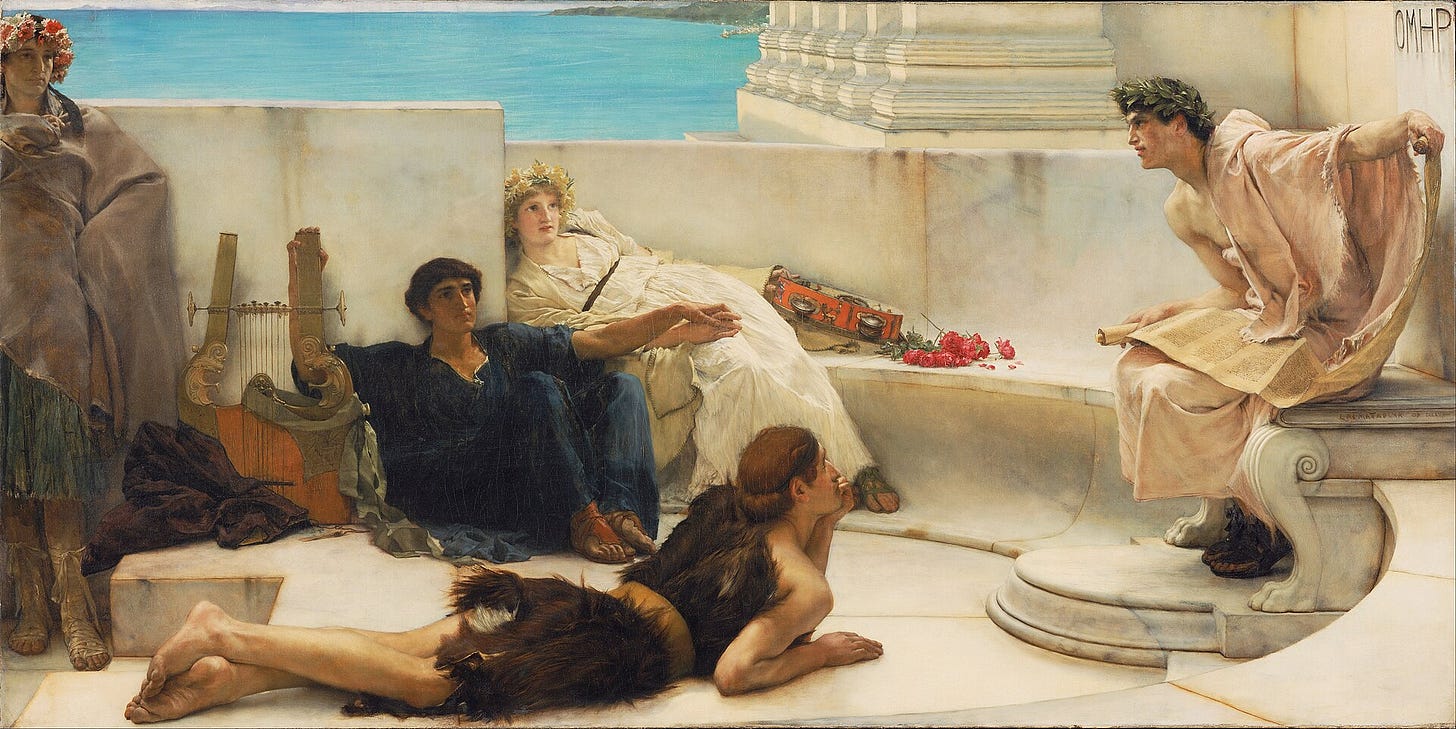Everyone wants to be happy. The problem is, most people don’t know what happiness actually is.
If you ask someone what would make them happy, they'll likely mention money, pleasure, success, or recognition. Aristotle heard these same claims over 2,000 years ago — and he rejected them.
According to Aristotle, happiness isn’t something you have. It’s something you do. True happiness — what he called eudaimonia — isn’t about fleeting pleasures or external rewards. It’s about living well, in accordance with virtue, and fully engaging in life’s highest pursuits.
So what’s Aristotle’s secret on how to be happy? There are three essential steps…
Reminder: you can support our mission and get our members-only content every weekend — in-depth articles and podcasts.
This Saturday, we explore the 5 ages of Rome: the Classical, Medieval, Renaissance, Baroque, and post-revolutionary periods of the Eternal City.
Join as a member to read it, and help support our mission 👇
The Illusions of Happiness
Aristotle recognized that most people chase happiness in one of three common ways: wealth, pleasure, and honor. While each of these has its appeal, none can sustain true happiness.
Take wealth, for example. It provides security and opportunities, but doesn’t guarantee fulfillment. Aristotle noted that, in many cases, people who value wealth become obsessed with accumulating money rather than using it well.
The result? An endless chase, and no satisfaction.
Pleasure is more complicated. Aristotle acknowledged that pleasure is a natural good, but he warned against making it life’s central goal. If you live only for pleasure, you risk becoming enslaved to fleeting desires, constantly chasing the next high, and never truly fulfilled.
As Aristotle put it, this is the life of “fatted cattle” — living for comfort, but never reaching excellence.
Then there’s honor. Recognition feels good. But honor is something others give you — it depends on their judgment, not your own excellence. If you live only for status, you may end up valuing recognition over actual achievement. Seeking honor for its own sake is empty if it isn’t tied to genuine virtue.
Aristotle’s conclusion? None of these paths lead to true happiness. They are distractions, not destinations.
The Real Meaning of Happiness
If wealth, pleasure, and honor aren’t sufficient, then how can you be happy?
It helps to start by defining the word “happiness” itself. Aristotle defined it as eudaimonia, a term that doesn’t translate neatly into English. It doesn’t mean that you simply feel good. Rather, it entails flourishing — living a life of purpose, virtue, and excellence.
The key difference is that wealth, pleasure, and honor are passive. They are things that happen to you. Eudaimonia, on the other hand, is active. It’s something you cultivate through action.
In his Nicomachean Ethics, Aristotle defines happiness as the “activity of the soul in accordance with virtue.” It’s not a prize to be won, but a way of living.
A great example of this comes from the world of sports. A skilled athlete doesn’t just sit around feeling happy. His joy comes from being in motion — training, competing, improving, and fully engaging in his craft.
In Aristotle's view, eudaimonia comes about the same way: happiness arises by actively cultivating your best qualities, not just passively enjoying comforts.
But what does this look like in practice?
Aristotle’s Guide to the Good Life
Aristotle’s blueprint for happiness is surprisingly practical. Here’s what it looks like:
1. Cultivate Virtue Through Habit
Virtue isn’t something you’re born with, it’s something you practice.
Just as an athlete trains for competition, you develop virtue by repeatedly choosing good actions. Courage, patience, wisdom don’t just appear — they become part of you through habit.
As Aristotle put it:
“We are what we repeatedly do. Excellence, then, is not an act, but a habit.”
Want to be generous? Give more often. Want to be disciplined? Practice restraint. Over time, these actions shape your character — and character shapes happiness.
2. Engage Fully in Meaningful Work
Happiness isn’t found in passivity, but in action.
Aristotle believed true fulfillment comes from using your talents to their fullest extent. This applies to everything from philosophy to craftsmanship to leadership. The key is engagement.
Consider the satisfaction of a musician performing at their best. Or a craftsman creating something beautiful. These moments — where skill, effort, and purpose align — are true happiness in action.
Contrary to what many people believe today, happiness isn’t about doing less. It’s rather about doing the right things, with full commitment.
3. Seek the Right Kind of Pleasure
Aristotle didn’t reject pleasure, he just insisted on the right kind. He knew that while some pleasures strengthen our happiness, others weaken it.
Lower pleasures such as eating, drinking, or binge watching television often leave you feeling empty afterwards. Higher pleasures, on the other hand — especially those associated with learning, mastering a craft, or developing meaningful relationships — provide you with a lasting sense of fulfillment.
In other words, the goal isn’t to reject pleasure, but to align it with virtue. Instead of chasing immediate gratification, seek pleasures that contribute to your long-term flourishing.
Happiness As a Way of Life
It’s important to note that happiness isn’t just something you arrive at. It’s something that is cultivated day in and day out by engaging in meaningful work, growing in virtue, and living with purpose.
But most importantly, happiness isn’t about what happens to you. It’s about who you become. In cultivating eudaimonia, you change the essence of your being — just as a farmer raising his crops becomes stronger because of his labor.
True happiness isn’t a fleeting sensation, but the product of a life well lived. The more you nurture virtue through action, the more deeply happiness takes root — until it becomes not just something you seek, but something you embody.
Thank you for reading!
If you want to support our mission to uncover Truth, Goodness and Beauty, join as a paid subscriber and get access to our entire archive of members-only content.
This Saturday, we explore the 5 ages of Rome: the Classical, Medieval, Renaissance, Baroque, and post-revolutionary periods of the Eternal City…👇









Gratitude is the key to happiness. That's why there are so many miserable wealthy people, and so many happy poor people.
If you aren't grateful for what you have, you will never be happy.
Ikigai philosophy in short